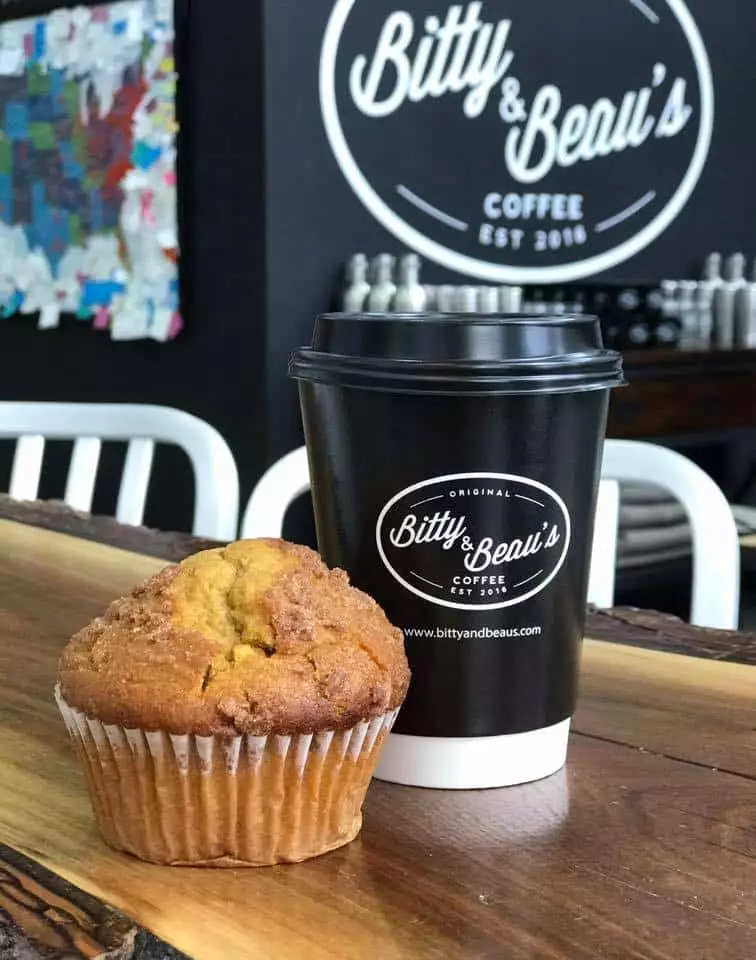
By: Lillie Wright
The history of coffee is as rich and deep as the drink itself. No one can pinpoint precisely how the first cup came about, but legend says a shepherd named Kaldi discovered that when his goats ate the berries of the coffee tree, they had so much energy they wouldn’t go to sleep. Kaldi brought this fruit to the monastery, turning it into a drink that helped the monks through their rigorous evening prayers. The drink quickly caught on from there, spreading to the Arabian peninsula. Local shops were established where guests could drink coffee, socialize, catch up on the news, and play chess, creating an early version of coffee culture. These cafes became integral to the Arabian culture. So much so that they were known as “Schools of the Wise.” Pilgrims traveling to Mecca caught wind of this new drink and visited coffee houses on their way to the Holy City. The pilgrims spread this knowledge to their home countries, thus sending coffee on a journey worldwide.
By the seventeenth century, coffee was all the rage in Europe. Explorers brought back tales of a dark black drink from the East, inciting curiosity and intrigue amongst the people. Some people, primarily clergy, were skeptical of the drink, but Pope Clement VIII gave it Papal approval after trying it himself. The green light from the Papacy permitted Europeans to indulge in this exotic new beverage, and coffee culture quickly spread across Europe. Like the Arabian peninsula, Europeans established coffee houses as community centers where people gathered to enjoy coffee, play games, and learn. For the price of a penny in England, one could purchase a cup of coffee and engage in academic conversation at “Penny Universities.” These establishments helped educate those who could not afford proper education but still wanted to collaborate with educated people.
Another side to the history of coffee, it replaced alcohol, specifically beer, and wine, as the primary breakfast drink. People who drank coffee started their day with more energy and had more productive workdays than those who consumed alcohol. We likely have these historical laborers to thank for creating the modern office coffee culture. Europeans brought their coffee with them to the New World in the 1600s. New Amsterdam (now New York) was the first state to receive coffee, though tea remained the beverage of choice. It wasn’t until 1773 and the Boston Tea Party that Americans officially switched to coffee after heavy taxation from the British. Coffee was considered an act of rebellion, exerting independence and autonomy against greedy overseas monarchs. The Dutch were the first to cultivate coffee outside the Arabian peninsula on Java and modern-day Indonesia, giving colonists and Europeans more control over their new favorite obsession. By the eighteenth century, coffee had become one of the most profitable export crops.
The history of coffee continues after the eighteenth century. Coffee is now a multi-billion dollar industry with a spectrum of preferences. From a Starbucks frappuccino to high-end pour-overs and artisan blends, there is a coffee experience for everyone. One tradition we have held onto is the social aspect of coffee. People still love to gather in coffee houses, drink warm beverages, and catch up on life. It is an integral part of our culture and a bridge to bring people together from all walks of life. People use coffee to have difficult conversations, connect with loved ones, and mark important life moments. Coffee is comforting, and making it for someone shows that you care. Many people believe that “coffee shops” are a relatively new phenomenon, but we are taking a page from the history books and following in the footsteps of our ancestors.
Coffee industry trends constantly change, and keeping up with them can feel like a cat-and-mouse game. One trend sweeping coffee is specialty coffee houses. These shops specialize in artisan coffee, creating beautiful drinks with high-quality ingredients. Drinking their coffee is an experience; they want to share it with people who appreciate exciting flavors and well-executed products. Another coffee industry trend that coincides with artisan coffee is sustainability. Everyone wants to be more eco-friendly, and the coffee industry is no different. Since coffee comes from a plant, farmers want to create healthy environments for their crops to grow and ensure that the earth can support coffee production for years. High-tech irrigation systems, sustainable harvesting practices, and combating deforestation are crucial to the survival of the coffee industry. Without coffee trees, the entire enterprise collapses. Sustainability is also vital in the roasting process. Volatile organic compounds and smoke released during the roasting process usually end up in the atmosphere, contributing to greenhouse gases. The chaff, or husk, from the outside of the coffee bean falls into a bucket under the roaster and is excellent for composting or gardening.
Sustainability looks like one coffee industry trend that is not fading soon, and that’s great news for the planet. Some roasteries have invested in incinerators that capture and heat these compounds to 1250ºF, destroying them. Only water vapor remains after this process, and it releases into the atmosphere without causing any harm. Many coffee shops also opt for alternative milks like almond, oat, or soy that do not involve animals. Cattle farming contributes to some of the highest amounts of methane gas in the world, so finding alternatives that still deliver on flavor marks a promising future for coffee lovers. Bitty and Beau’s Coffee is committed to creating a better world not just for people with disabilities but for everyone. We strive to improve our sustainability while creating an atmosphere that fosters inclusion and accessibility.
